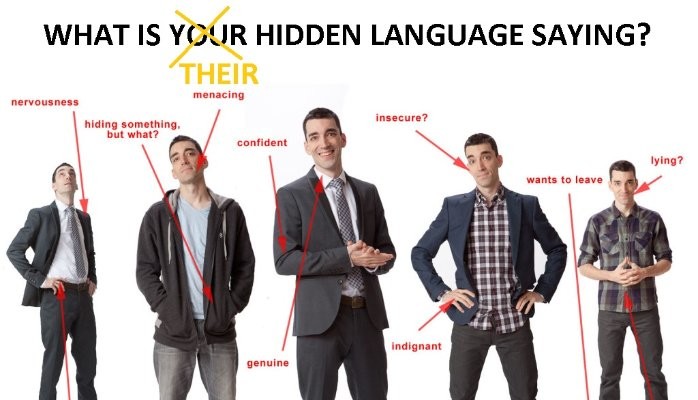
The Importance of Body Language in Interviews : The Do's and Don'ts.
Body Language Tips
The expression “it’s not what you say, it’s what you do” is never more true than during job interviews. Your body language can have a significant impact on how you’re perceived, and so you have to be aware of it from the moment you step through the door. That’s right, you’re being judged even before you’ve uttered your first word.
Here are some handy hints to ensure your body language makes a good impression. The Do’s and Don’ts of body language.
The Do’s
Make eye contact
- This is the best way to show you’re actually paying attention and engaging with the situation. Of course this doesn't mean stare blankly at your interviewer, but strive to hold eye contact for a few seconds at a time.
- If you’re faced with more than one interviewer, be sure to make eye contact with all of them. Address the person who asked the question, then hold eye contact with the other interviewer for a few seconds, before returning your attention to the first interviewer.
Use your hands
- Subtly, of course. Touching your fingertips together suggests authority but, as with all things, use it in moderation.
- Keeping your palms facing up is a sign of openness and honesty, so keep them in your lap. Try not to clench your fists or wave your hands around to make a point, it will make you seem nervous and unpredictable. And please don’t bite your nails. You’ll look nervous and it’s really distracting!
Smile
- Smile and nod where appropriate, and laugh when the interviewer does. You want to show you have a personality and you’re paying attention to what’s being said.
- It goes without saying that you should listen attentively and try not to interrupt.
Tone of Voice
- Focus on keeping your tone of voice even and polite. Too soft and you’ll seem timid, too loud and you’ll seem domineering.
Hand Shake
- When it comes to handshakes, always remember to stick to the middle ground. Too firm is arrogance, too weak is a pushover.
- Most importantly, be respectful and keep a professional personal distance at all times. The first image the interviewer has of you is most likely the one that will stick, but a graceful goodbye is just as important as a classy hello.
- Your aim is to always keep the focus on the conversation, so keep your expression interested, your posture confident and your head high from the moment you arrive in the lobby until the second you’re a safe distance away.
Mirror
- You can quickly get on good terms with your interviewer by matching their positive body language.
- But do so sparingly and carefully, if you’re too bold you’re more likely to frighten the poor interviewer! Mirroring a nod or a subtle shift in posture can create common ground between two people, while matching a handshake is always a good equalizer.
The Don’ts
Slouch
- Sitting hunched forward, or lounging with arms and legs everywhere has the effect of looking a little too relaxed. You don’t want to sit there tightly clutching your fists in your lap, but you also don’t want to portray a casual, not really bothered attitude.
- From the moment you arrive in the reception area, you need to keep your posture perfect. Always be aware of your body position and avoid angling yourself towards the door, it’ll look like you’re planning a quick escape! Sit up straight and lean forwards a little when you’re asked question, it gives a sense of curiosity and engagement.
Touch your face
- People who play with their hair or excessively touch or rub their noses can seem dishonest and untrustworthy. Also try to avoid rubbing your head, eyes or neck; it can give the impression of being bored, tired or disinterested. Same goes for sitting with your arms crossed, it just makes you look defensive and unapproachable.
- All your personal gestures should be open and expressive. Keep your shoulders relaxed and facing the interviewer to ensure they’re always involved in what you’re saying.
Move about
- This includes tapping your fingertips in the arm rest or jiggling your leg up or down. It’s a sign of boredom and impatience. Keep both feet planted firmly on the floor to avoid the temptation. It’ll help to keep your posture straight and focused on your interviewer, which in turn will make you seem more focused.
By taking these simple steps into consideration you will be 1 step closer to securing that dream job.
Looking for that next career move? contact keith@executiveconnections.ie for banking roles in the great Dublin area.
Sales Representative Munster & Connaught
8yInteresting piece